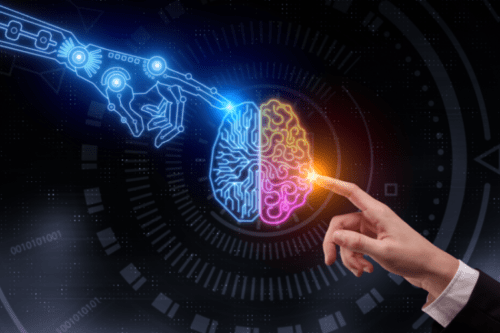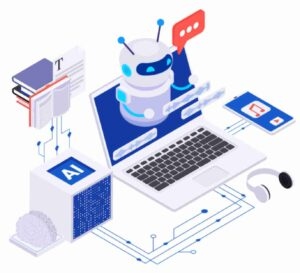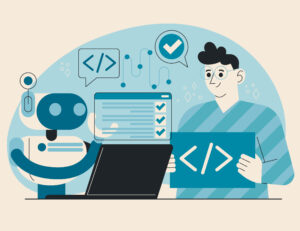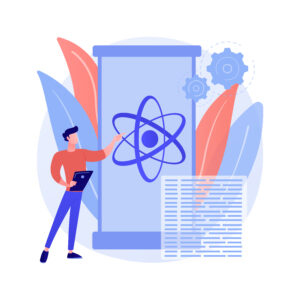Introduction:
In the contemporary era, Artificial Intelligence (AI) stands as a revolutionary technology, reshaping industries, propelling innovation, and revolutionizing our lifestyles and workplaces. At its core, AI seeks to replicate human intelligence, allowing machines to perform tasks, make decisions, and solve problems with remarkable precision and efficiency. This article delves into the multifaceted world of AI, exploring its purpose, types, impact on society and industry, and the exciting possibilities that lie ahead.

Section 1: Understanding the Purpose of Artificial Intelligence
Artificial Intelligence, often abbreviated as AI, encompasses a broad range of technologies and approaches aimed at enabling machines to mimic human-like thinking and learning. Its overarching purpose is to enhance decision-making, automate tasks, and solve complex problems across various domains.
AI finds its purpose in several key areas:
- Automation: AI-powered systems can automate repetitive and time-consuming tasks, freeing up human resources for more creative and strategic endeavors. Within the manufacturing domain, AI-powered robots excel, surpassing human capabilities in executing complex assembly tasks with unmatched precision and efficiency.
- Data Analysis: AI excels at processing and analyzing vast amounts of data. In healthcare, AI-driven algorithms can diagnose diseases by analyzing medical images and patient data, leading to quicker and more accurate diagnoses.
- Personalization: AI algorithms can tailor content and recommendations to individual preferences. In the world of e-commerce, AI-driven recommendation engines suggest products based on a user’s past behavior and preferences, enhancing the shopping experience.
- Prediction: AI can forecast trends and outcomes by analyzing historical data. In the realm of finance, AI-driven predictive models prove invaluable, guiding risk assessments and shaping investment strategies effectively.
Section 2: Exploring Different Types of AI
AI can be categorized into several types, each with its characteristics and capabilities:
- Narrow AI (Weak AI): Narrow AI is designed for specific tasks and excels within a limited domain. Virtual personal assistants like Siri and Alexa are examples of Narrow AI, as they are optimized for voice recognition and basic information retrieval.
- General AI (Strong AI): General AI represents the pinnacle of AI development, aiming to possess human-like intelligence and adaptability. We have yet to achieve this level of AI, and its development remains a long-term goal.
- Machine Learning (ML): ML is a subset of AI that focuses on training algorithms to improve their performance based on data. Applications range from image recognition to natural language understanding.
- Deep Learning: Deep Learning is a subset of ML that involves neural networks with multiple layers. Its transformative impact on AI lies in its ability to empower machines, enabling them to process unstructured data like images and text with exceptional precision.
- Natural Language Processing (NLP): NLP focuses on enabling machines to understand, interpret, and generate human language. This technology is behind chatbots, language translation services, and sentiment analysis tools.
- Autonomous AI: Autonomous AI refers to machines capable of making decisions and taking actions without human intervention. Self-driving cars are a prominent example, relying on AI to navigate and react to changing road conditions.
Section 3: The Impact of AI on Society and Industry
AI’s impact on society and industry is profound, with far-reaching implications:
- Healthcare: AI is revolutionizing diagnostics, drug discovery, and patient care. AI-powered tools analyze medical images, predict disease outbreaks, and enhance patient monitoring.
- Finance: AI-driven algorithms are used in trading, fraud detection, and credit scoring. They process vast amounts of financial data to make informed decisions and manage risks.
- Transportation: Autonomous vehicles are changing the landscape of transportation, promising safer and more efficient roadways. AI-powered navigation systems improve route planning and traffic management.
- Education: AI-based personalized learning platforms cater to individual student needs, enhancing the educational experience. Additionally, AI takes on a pivotal role in streamlining administrative tasks for educators, yielding substantial gains in efficiency and productivity.
- Ethical Considerations: The swift expansion of AI has provoked ethical apprehensions, encompassing algorithmic bias, privacy dilemmas, and employment disruptions via automation.
- Global Challenges: AI plays a critical role in addressing global challenges like climate change. Predictive models and data analysis help in climate research and environmental monitoring.
Section 4: The Future of Artificial Intelligence
As we look ahead, several trends and developments are shaping the future of AI:
- Quantum Computing: Quantum computing can exponentially boost AI’s computational capacity, fostering breakthroughs in complex problem-solving and AI training.
- Human-Level AI: The pursuit of human-level AI is an enduring aspiration, as advancements in deep learning and neural networks continually broaden AI’s possibilities.
- Responsible AI: The establishment of AI ethics guidelines and regulations grows in importance, ensuring responsible AI use, mitigating bias, and enhancing transparency.
- AI Collaboration: AI is poised to drive substantial collaborative synergy between humans and machines, amplifying creativity and productivity.
Conclusion:
Artificial Intelligence is not just a technological advancement; it’s a transformative force reshaping our world. From automating mundane tasks to revolutionizing industries, AI has the potential to improve our lives in countless ways. Yet, the swift expansion of AI brings to the forefront ethical and societal challenges, necessitating meticulous evaluation and examination. In our journey through this thrilling AI-powered future, responsible development and astute governance become vital for maximizing benefits and mitigating risks






